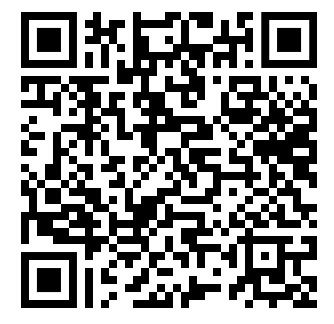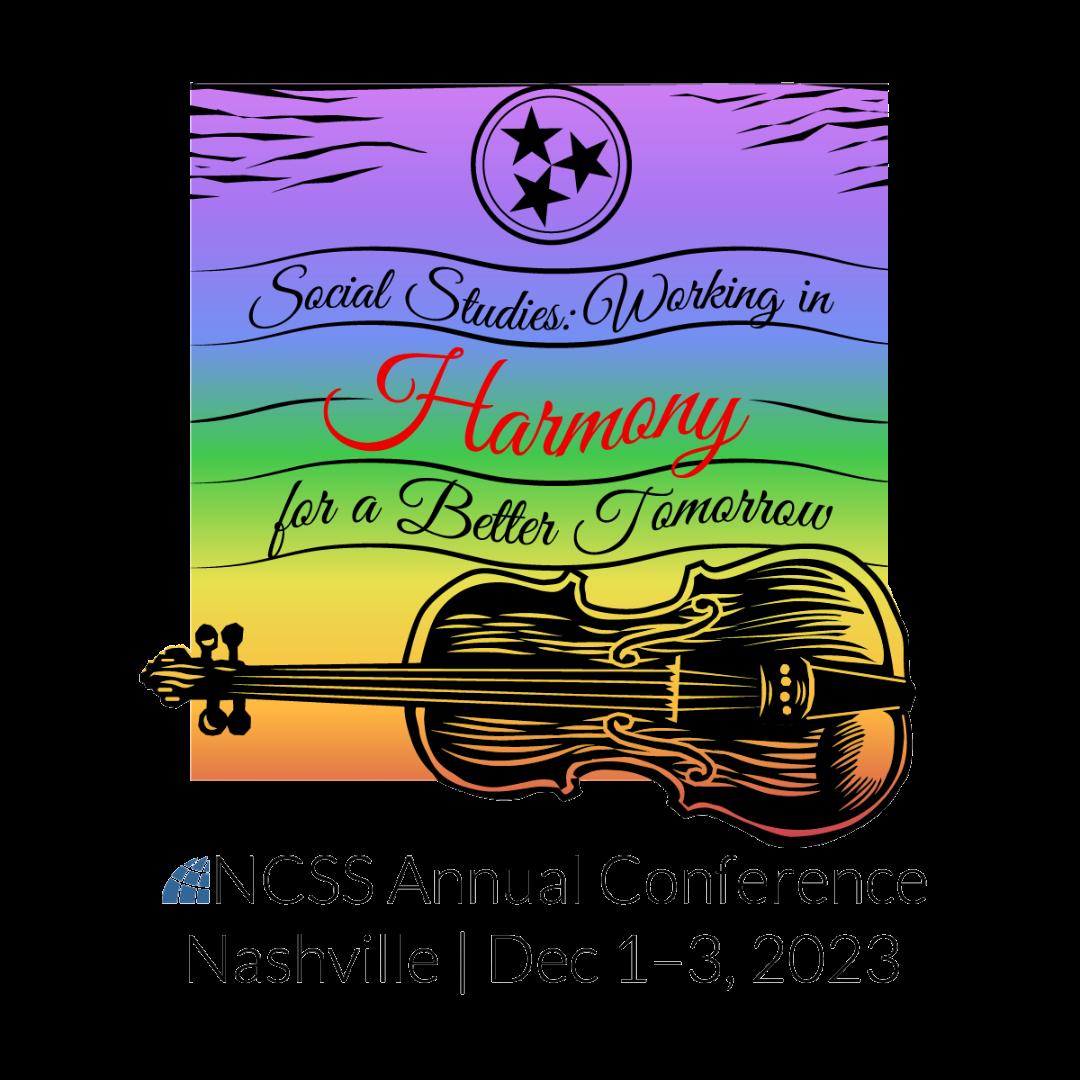
Be sure to use the Sched in your browser to track your sessions!
Congrats to WCSS for being a Gold Star Council!!
















Be sure to use the Sched in your browser to track your sessions!
Congrats to WCSS for being a Gold Star Council!!
















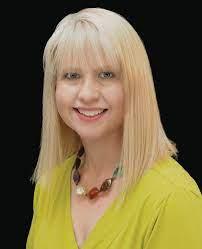
Dr. Jill Underly was elected State Superintendent of Public Instruction on April 6th, 2021. Dr. Underly has a deep background in public education, since 1999, she has worked in all facets of public education, PK – 16 as a high school and middle school social studies teacher, a University of Wisconsin College of Letters & Science academic advisor, a Title I Consultant and assistant director at the Wisconsin Department of Public Instruction, an elementary principal and Director of Instruction, and most recently, a rural school district superintendent.
Dr. Underly received bachelor’s degrees in history and sociology from Indiana University-Bloomington, a master’s degree in secondary education from Indiana University-Purdue University, and a master’s degree in educational administration and a doctorate in educational leadership and policy analysis from the University of Wisconsin-Madison.
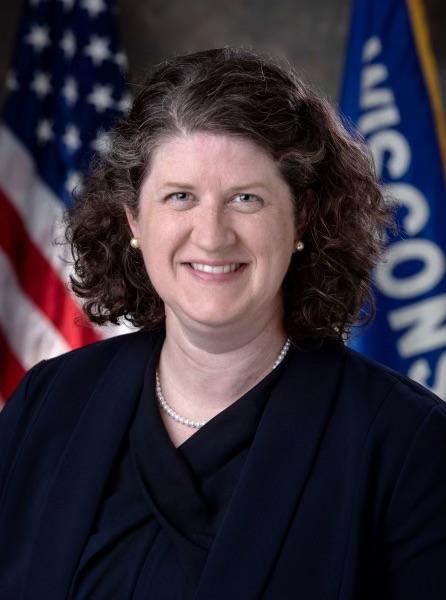
Deb's path to the education profession began with her service in the United States Army as a Korean linguist, prior to the military's Don't Ask, Don't Tell policy. (Her story is featured in Vincent Cianni’s award-winning book Gays in the Military). After teaching English at a private academy on the outskirts of Ulsan, South Korea, she returned to the United States in 2004 and spent the next decade teaching English and a variety of humanities courses to new immigrants and refugees at a large, urban, truly diverse high school. During that time, she produced two documentary films, Hard Truth, Levity, and Hope (2011) and Through Gay Eyes (2013) to promote awareness of students and families who are ignored, marginalized, or excluded within the public school system.
Shannon Pugh is the Director of Community and School Programming for Anne Arundel County Public Schools in Annapolis, Maryland where she supervises Title I, Community Schools, and other programs and grants designed to support schools with high concentrations of poverty. Prior to assuming her current position, she held the positions of Manager of Academics and Strategic Initiatives and Secondary Social Studies Specialist. An educator for 28 years, Shannon began teaching in rural Mississippi. She then moved to Dallas, Texas where she taught AP history, economics, and art courses as well as sheltered (ESOL) world geography. While in Dallas, she was a member of the Texas Council for the Social Studies and served as Secretary and President of the Dallas Council. She also became one of the first three social studies teachers in Texas to earn National Board Certification. Shannon is a two-term member of the NCSS Board of Directors and serves on the Maryland Council for the Social Studies Board of Directors.

Evaluating Online Information: Strategies for fact-checking, identifying misinformation and finding reliable sources.
Students’ ability to evaluate the information they encounter online is an increasingly crucial skill. In this workshop, educators will discuss the skills necessary to evaluate online information and develop strategies to teach students how to be savvy consumers of news and other online sources. Using the PBS/KQED Media Literacy Certification mini-credential as a guide, participants will learn strategies to engage students in evaluating online information like fact-checking, lateral reading, identifying misinformation, and finding reliable sources. Participants will have a chance to get hands-on with practicing fact-checking and source-analysis strategies that they can later implement in class. Participants will come away with concrete strategies for facilitating the analysis of online information for middle and high school students and a list of resources to implement in their classrooms.
The decades that preceded Abraham Lincoln’s presidential election and the onset of secession and civil war saw an America increasingly divided over the future of slavery in the United States. This seminar will explore the events and turmoil that ultimately led to the greatest conflict this nation endured. The readings that follow present a diversity of opinions regarding that division, and how best to resolve what Harry V. Jaffa called “the crisis of the house divided.”
This program will be conducted as a Socratic discussion, utilizing primary source documents as the only readings, and with the Discussion Leader facilitating the conversation, instead of lecturing or presenting. Registrants, therefore, are highly encouraged to read all the documents in advance and come ready with questions. Teachers will receive a Letter of Attendance at the conclusion of the seminar.
This program invites teachers to interact with Bill of Rights Institute (BRI) staff and fellow teachers in curricular workshop sessions and experience live presentations from an esteemed scholar expert. Inspired by the new digital resource, Plainest Demands of Justice: Documents for Dialogue on the African American Experience, this in-person professional development seminar utilizes free BRI content to examine the experience of African Americans throughout history. Participants will have the opportunity to engage with a scholar expert whose field of study will deepen their knowledge base on the topic, as well as have rich interaction with the BRI staff and fellow teacher colleagues to share ideas of pedagogy and practical classroom applications.
Joe Schmidt Bill of Rights InstituteLunch 12:00-1:00pm
Capitol Tour- Friday Only- Prior Registration required 3:00pm
Are you equipped to engage in discourse around relevant topics of the day, even those that some consider contentious? Combining research-based best practices and years of classroom and supervisor experience, the CUBED approach from the book “Civil Discourse: Classroom Conversations for Stronger Communities” is a "how-to" guide that supports civil discourse and student engagement in the classroom. Educators need to start planning for conversations before the first student enters their classroom in the fall and work to align these conversations to themes, skills, and standards throughout the year to prepare for the most challenging topics students will face. Work with the presenter and other attendees as you share ideas and begin to think about how to implement CUBED into your classroom.
Joe Schmidt Bill of Rights Institute
Teach the Holocaust, Change a Life
“Even in darkness it is possible to create light.” -Elie Wiesel Through stories of rescuers and resisters, learn ways to teach the Holocaust in a way that inspires your students to be a generation of upstanders.
Civic engagement, critical literacy, and empathy for multiple viewpoints are essential skills for all community members, even our youngest learners. Multiple studies show that social studies instruction and inquiry are among the most effective methods for introducing these concepts to all students. Despite this compelling evidence, dedicated time for social studies continues to be cut in K-5 classrooms. In this workshop, elementary educators will learn creative and engaging strategies to incorporate social studies and civics-related content throughout the school day.
This year we are honoring an educator advocate who is living the vision and mission of WCSS. Our conference theme is "Many Voices, One Wisconsin! Diverse perspectives on histories, citizenship, and belonging". Our Board of Directors at the Wisconsin Council for the Social Studies would like to publicly honor David O'Connor (Bwaakoningwiid) who is living the vision that we hold for how to improve social studies and civics education in our Wisconsin schools. David's work to connect with educators to provide support for their understanding of histories, cultures and tribal sovereignty has had immense impact on the way that teachers approach history and social studies in their classrooms, but more importantly, his work has facilitated opportunities for students in all corners of our state to be connected to diverse perspectives on histories, citizenship, and belonging in the Badger State. Thank you for everything you do Bwaakoningwiid! Miigwech!

Registration Opens 8:00am
Welcome to the 2022 WCSS Conference!
Hear from Dr. Underly about our pivotal importance as a subject area, and the new civics K-12 scope & sequencing work that will be recommended by the DPI in the 2024-25 school year.
9:00-10:00am
Session 1 PD Sessions 10:10am-11:00am
John Nabors, Studies Weekly
Teachers will build on their toolbox and practice strategies aligned to the C3 Framework and 4 Dimensions of the Inquiry Arc. Aimed at K-8 educators, the presentation will guide teachers from research to actual practice in the classroom. While targeting teachers with a novice to intermediate understanding of inquiry, teachers with advanced levels of understanding would glean unique tools for integration of content and practice as well. Participants will receive a free inquiry from Studies Weekly at the end of the presentation as well as free access to the online tools for 30 days.
Hanadi Shatara, University of Wisconsin-La Crosse
This presentation is for secondary geography and world history teachers interested in learning more about Central Asia. Attendees will receive an Inquiry Design Model (IDM) centered around the compelling question: How is Central Asia global? The session will begin with a presentation on foundational content knowledge on Central Asia and a description of the IDM. Attendees will participate in an activity where photos and images of Uzbekistan and Tajikistan will be used to infer how Central Asia is global. This presentation is a part of the Fulbright-Hays Group Project Abroad in Uzbekistan and Tajikistan during the summer of 2022.
John Snoad, Sphere Education Initiatives
(High School) Economics is at the forefront of current political and historical discussions. This presentation seeks to engage teachers in discovering ways to engage students in conversation about not only economic theory and systems, but using tools and applications that will make connections to their daily lives and our society. Discussion will center around comparative v. absolute advantage and how they effect decision-making, as well as exploring the relationships between time, prices, and wages.
Kate Ullman, Wisconsin Civc Learning Coalition
Has teaching civics and government has become more challenging in recent years? Is it more intimidating to bring controversial issues into your teaching than it was in the past?
What successes and challenges have emerged in your district or classroom? What exactly do students need to learn to become effective participants in government at the local, state and national levels? How can elementary level teachers support young students civic development? Join fellow educators in a wide ranging conversation exploring the challenges and opportunities of civics education today, and share your thoughts about what support teachers need to achieve the civic mission of schools. Hosted by the Wisconsin Civic Learning Coalition (www.civicswi.org).
Rhonda Watton and Kate Van Haren, Pittsville Elementary School/Penn State University
The relationship between the United States and Korea has come a long way since the Korean Conflict and continues to evolve today. Using the fascinating history of Korea’s change from an ancient kingdom to a modern tech giant, participants will learn how history, geography, economics, and civics are necessary for understanding communities. Lessons will focus on concepts such as syncretism (the spread and diversification of Buddhism), understanding site vs. situation, factors of production, and civic engagement. Although these activities focus on South Korea, the format can be adapted for other countries. In addition, participants will explore the online archives of the World History Digital Education and the Korean War Legacy Foundation and learn about other professional development opportunities. All resources are available online and free.
Samantha Hoppe, Beloit Memorial High School
A focus on interactive activities and simulations in the Psychology classroom. This session will cover multiple activities that educators can use to involve students in understanding psychology in a hands-on manner, including using the Survivor simulation. In addition, this session will also include a focus on differences between Regular and AP Psychology courses and activities that can be modified based on the students' prior knowledge and skills.
George Dalbo, Clinton Community School District
Often called the first genocide of the modern world, the Armenian Genocide happened under the cover of the First World War and, according to many scholars, laid a foundation for the Holocaust and other instances of genocide and mass killing. This interactive session will explore teaching about the Armenian Genocide and its legacy in middle and secondary social studies courses. The session will explore teaching the events in the context of a unit on World War I as well as within a comparative genocide unit (one in which multiple cases of genocide are examined). This session is aimed at middle and high school social studies teachers and specifically those seeking to meet Wisconsin’s new Act 30, the state’s Holocaust and genocide education mandate. Participants will come away with a nuanced understanding of the genocide and its aftermath, resources (including primary and secondary sources, and fully-developed classroomready lesson and unit plans.
Liz Park, inquirED
How can the social studies curriculum move beyond a textbook model to engage all students' lived and historical experiences? Discover a new model for social studies curriculum design.
Joe Schmidt, Joe Schmidt Social Studies LLC
Are you (or the educators you support) equipped to engage in discourse around relevant topics of the day, even those that some consider contentious? This presentation combines research based best practices and years of classroom and supervisor experience in laying out a "how to" guide that supports student engagement in the classroom. Educators need to start planning for civil discourse before the first student enters their classroom in the fall and work to align these conversations to a theme (like in the EAD Roadmap), skills (like in the C3 Framework), and standards (like your own state and/or district standards) throughout the year in preparation of the toughest topics that students will face.
Session 1 Extended
Molly Garner Carroll molly.carroll@wisc.edu, Annalee Good annalee.good@wisc.edu, Latoya Holiday lcampbell1@wisc.edu, Deonte Iverson diverson3@wisc.edu, Shahanna McKinney-Baldon shahanna.baldon@wisc.edu, Kate Roberts karoberts4@wisc.edu Wisconsin Center for Education Research,
As professionals, teachers should be at the center of creating the policies that affect their daily decisions in the classroom and beyond. Join educational policy scholars from Wisconsin Education Policy Outreach and Practice (“WEPOP”) at UW-Madison in an introduction session “Teachers as Policy Advocates”. We will engage in interactive discussions on teachers’ roles as policy experts, policy makers, and policy advocates. Participants will leave with tools and ideas for a policy action plan.
Jake Boll, CESA 5
Session 1
Extended
This workshop will focus on student inquiry with a focus on the first five social studies standards. 6th-12th grade teachers will gain resources and strategies to help students read, write, discuss, and debate course content in an engaging and meaningful way. Shared guiding inquiry standards will have students: constructing meaningful questions that initiate an inquiry, gathering, analyzing, and evaluating sources, developing claims using valid evidence to support reasoning, communicating and critiquing conclusions.
Kathleen Barker, History Unerased
Extended
This interactive session will introduce strategies for sharing LGBTQ-inclusive history with students at the elementary level. We will discuss appropriate terminology and language, and provide examples from History UnErased’s curriculum. Learn more about using picture books to complement and contextualize a variety of LGBTQ historical topics.
Our Human Progress by the Numbers: Is Life Getting Better or Worse?
John Snoad, Sphere Education Initiatives
11:10am-12:00pm
Session 2
Is life getting better or worse? In today’s age of information driven by multi-media, we are often left puzzled as to what the right answer is. News can be misleading as the stories we see and read, or scroll and click on, are selected based on the potential ratings they might draw. So, what is the real state of the human condition today? What do our histories and stories tell us about human progress? In this presentation, we will explore changes that have occurred since World War II, analyze data and statistics that tell the story of progress, and access interactive media which allow participants to do connect themselves to the data and have comparative discussions with peers. Participants will learn how measuring tools such as income, infant mortality, level of education, and others, have changed during their lifetime and compare their results with people around the globe.
George Washington’s World Session 2
Rhonda Watton Jenny Morgan, WCSS/NCSS
George Washington is commonly referred to as the “Father of Our Country”, but are you looking for top quality resources on how to teach his contributions to our country as a leader, a slave holder, and businessman? Come explore the resources available through George Washington’s Mount Vernon with Wisconsin scholar educators who have taken part in the Mt. Vernon Teacher Institute Summer Residential Program.
"Teaching the Asian American Experience Through Food" Session 2
Ron Kuramoto, Asian American Pacific Islander Coalition of WI
Inspired by a college-level course entitled “Understanding Asian America Through Food” taught by Mr. Bo Kim at Rice University in Houston, this presentation examines how stereotypes and portrayals of Asian foods in media (especially social media), art, and literature intertwine with racial prejudice to influence perceptions and discrimination experienced by Asian Americans and Asian American communities. As the Rice University course description states: “Using food as a pedagogical tool encourages students to think more deeply about an already familiar topic that they will continue to encounter in their lives. The course focuses on linking larger economic, cultural, and political issues to food-related topics in order to introduce these topics in a more accessible way.” This presentation will not be a cooking class nor an Asian restaurant rating tour. It will, however, be an unique cultural deep-dive into the soul of teaching about the Asian American experience.
Kate Arnold Ullman, The Legislative Semeter
Explore how to use authentic simulation to teach civil discourse, information literacy, and bring students' lived experience into the classroom. Using simulations allows students to learn how our government works by experiencing the process, while exploring their own political beliefs and ideas on a variety of topics. The Legislative Semester leads students through the policy making process by using daily simulation of public meetings, committee hearings, and the legislative process. Learn how to get started with this research-based and highly acclaimed curriculum today!
Hexagonal Gaming Session 2
Andrea Schreiner, University of River Falls
I am a pre-service educator who has come up with a modification to Hexagonal thinking that will bring a game based aspect into the classroom for students. This is a fun way to foster deeper critical thinking for students.
Liz Park, inquirED
2
Ever wondered what inquiry in social studies actually looks and feels like in the classroom? How can you create buy in and excitement for an inquiry unit? What is informed action? Come to this special session to experience inquiry in social studies firsthand – and leave with resources, strategies, tools, and more.
The Holocaust Education Map Session 2
Samantha Abramson Samantha Goldberg , Holocaust Education Resource Center
Explore HERC’s digital toolkit for teaching the Holocaust and building curriculum
Session 3 PD Sessions 1:25pm- 2:15pm
Simulation: Democracy in multi-party systems Session 3
Lyman Elliott, Madison, West HS.
This learning-by-doing activity is simple, fun, and fruitful. Whether you are exploring the ins & outs of Parliamentary systems, exploring the fractured party system that helped bring Hitler to power, or debating the role of 3rd parties in US Politics and Government; this lesson will have impact! With strong Social Emotional Learning, History, and Poli-Sci components, you'll be excited to take this one back to the classroom!
Joe Schmidt, Bill of Rights Institute
The Constitution set a strong foundation for our country though its writers understood that people would need to engage in conversations about it to support a thriving nation. Some ideas about our country and the Constitution have been contentious since the beginning and through thoughtful deliberations, a best solution could be reached to ever changing times. Disagreements about the Constitution is a feature, not a bug, of our system. Explore the topic of slavery though document analysis while engaging in a discourse strategy that will help allow your students to have similar discussions in your classroom.
Kevin Podeweltz, DC Everest
In this session, you will learn how our team of teachers developed an Iditarod unit in order to have inquiry, research, current events, history, and podcasting with in our teaching for our 4th graders. The students learn about the race, research and write, and record their podcast.
Nancy Roncke, Waukesha School District
This interactive presentation will showcase how intentionally planning for concrete experiences, reflective practice, abstract hypotheses, and active testing positively impacts what and how all of our students learn. Student discourse and metacognitive practices are critical parts of this learning process.
Erika Lowery, Institute for Curriculum Services
This session examines the rich diversity of the Jewish American community in efforts to teach students about individual identities, as well as the diversity of the Jewish American community and its impact on American society. Learning about Jewish diversity illustrates how identities (of Jews and all people) are multifaceted and how people’s unique combination of identities shape individuals’ experiences of and with the world.
Jake Boll, CESA 5
Is your school transitioning to standards based grading and you'd like some support? Join us! We'll talk about essential standards, proficiency scales, skills and content standards, and look at examples of rubrics and assessments in social studies. Don't let the transition scare you - you've got support!
Many Voices from the Classroom: Student don't HAVE to do this, they GET to do this.
Ashley Hahn, Lake Denoon Middle School
Session 3
A middle school social studies educators presentation on multiple engagement lesson ideas including workshop/round table discussions on how to transfer engaging lessons and simulations into evidence of learning.
Teach Wisconsinbly!
Chuck Taft, WCSS/University School of Milwaukee
Session 3
All social studies is local, right? Let's bring that idea to our classrooms, no matter the age level, subject, or specific content. State and local history, politics, economics, and culture can increase student engagement and understanding, hit essential standards, and connect your students with their community - and we have a rich . Let’s spend some time hearing about and seeing some practical ideas to integrate local studies into our big pictures, sharing methods and content, and using online materials to bring more local connections to your Badgers! FORWARD!
1:25pm- 3:15pm
Session 3
Extended
Dean Vesperman Mary Wright, Ken Fesenmaier, Rachel Gust, Raleigh Jahn, Lorenzo Mata Gallegos, Geoff Osterbauer, Andrea Schreiner, Maddie Sticha, Zac Trenary, Tennessee Wacek, Jennifer Wendlandt, Victoria Wilson, University of Wisconsin-River Falls California, Armenia, Lithuania, Cambodia, and Rwanda. What do these five places have in common? Genocide: the systemic and planned murder of another ethnic group. Our presentation explores how teachers can help students investigate the events surrounding this crime against humanity before, during, and after the Holocaust. The presentation will begin with a discussion about the origins of the crime of genocide and a deliberation about if we can consider acts before the UN Convention to be genocide. Next, teachers will explore each of the five aforementioned events and how to teach about these events using project-based learning. We will discuss the importance of using a guided or student directed inquiry process in designing curriculum around genocide. During this session, teachers
Enslaved, Indentured Free: Five Black Women in the Upper Mississippi, 1800-1850
Caya-Slusser Susan, Wisconsin Historical Society - Villa Louis Historic Site
Session 3
Extended
The Northwest Ordinance of 1787 made slavery illegal within the Northwest Territory. Yet as individual territories and then states formed to become Indiana, Illinois, Michigan, Iowa, Wisconsin, and Minnesota, laws allowed for enslavement of Black people to continue.
Using contemporary legal documents, military records, court transcripts, and personal correspondence, I focus on the lives of five Black women who lived in the upper Mississippi River valley and whose lives intersected at Prairie du Chien. Mariah, Patsey, Rachel, and Courtney fought for and ultimately secured their freedom through resourcefulness, self-purchase, and freedom suits. All four women were influenced by Marianne, who demonstrated what it took to survive, raise a family, and thrive as a free Black woman.
Civic Education: Participation in the Wisconsin State Legislature
The story of the lives of these five enslaved, indentured, and free Black women provide a glimpse of the lives of over two hundred Black men, women, and children who lived on the Wisconsin frontier prior to the Emancipation Proclamation.
Session 3
Extended
Dr. Tammy Wehrle, WISCONSIN STATE SENATE
Participants will learn how to engage their students in the legislative process and receive knowledge of the programs offered by the Wisconsin State Senate. As part of the presentation, attendees will be given a unique tour of the Capitol.
Session 4 PD Sessions
2:25pm- 3:15pm
Simulation: The Electoral College Session 4
Lyman Elliott, Madison, West HS
The great little simulation will introduce an authentic air of competitiveness to your classroom. Split students up into teams, everyone gets a job, and let's get to work this campaign season!!! How do politicians make decisions about where to campaign? How do votes get tallied in the electoral college? Which class -which team- wins?!? Participants will be lead through a truncated version of the simulation.
Divided by Design: Milwaukee Session 4
Heidi Erstad, Divided by Design: Milwaukee
Year after year, Milwaukee lands at or near the top of the most segregated US city list. Does it matter? In this presentation, we will share a community-developed curriculum where high school students investigate this compelling question. In this standards-based inquiry, students use a range of primary sources to understand the roots of housing discrimination and metaphorical thinking to explore how the past connects to race-based disparities of today. Students are then provided options from which to take informed action. Presentation participants will engage in key activities from the curriculum and leave with free, ready-to-use teaching resources (e.g., lesson plans, links, timelines, personal accounts, maps).
Angela O'Regan, Elmbrook School District
Speaking, reading, writing, & listening are essential to a social studies class. In this session you will learn several strategies that can be used in every social studies class that will get students moving, thinking, and engaging in your lesson.Furthermore, we will look at how to grow students' vocabulary, foster student conversations, and provide them with valuable feedback.
Erika Lowery, Institute of Curriculum Services
Knowledge of the world’s religions is essential for understanding much of history, literature, art, and contemporary events, as well as cultivating mutual respect amongst different faiths. This session aims to increase participants' knowledge level of one of the world's oldest religions and its global, historical impact through examining the origin of Judaism, highlighting its rich history, laws, traditions, and diversity, while also recognizing that Judaism has a uniqueness of being a culture, as well as a religion.
Christian Marten, Lake Geneva Middle School/National World War II Museum
The National World War II Museum provides free professional development opportunities for educators. During the summer of 2022, I had the opportunity to attend one of their teacher seminars in New Orleans. This presentation will share information gained from attending: The Power of Propaganda: Teaching Media Literacy Through World War II. This presentation will provide three teacher takeaways: 1. We will discuss and define media literacy and propaganda. 2. You will be provided with a tool to use with students to analyze World War II era examples. 3. Provide a framework for students to create and analyze contemporary propaganda.
In the coming decade, we are likely to see a sharp rise in refugees worldwide — with potentially 200 million people in motion by 2030. This presentation will offer ideas and information useful to teaching K-12 students about this subject in the context of past and impending global transformations. It will focus on the social processes and uses of language that dehumanize refugees, and then discuss ways to help re-humanize them and counter dangerous trends that can lead to fear, indifference, or worse. The presentation will draw on findings from a workshop on teaching about refugees and statelessness hosted recently by the Center for Southeast Asian Studies (CSEAS) and the Latin American, Caribbean, and Iberian Studies (LACIS) program at UW-Madison.
Kaelee Heideman, Wisconsin 2023 Teacher of the Year
Session 4
In this session you will learn how and why social emotional learning can be integrated with social studies from an elementary school counselor’s perspective. We will discuss how we can combine forces to prepare our students to become productive and thoughtful citizens of the world. You will learn how to naturally infuse social emotional learning with social studies while taking on an equity lens and appreciating the diversity of your students. Additionally, you will have the opportunity to interact with a therapy dog and learn how therapy dogs can become a part of these lessons to make them more accessible to students.
Dean Vesperman, UWRF, Grand Valley State University, University of Houston, San Antonio College
This presentation aims for educators to:
Session 5
Collaborate with peers to use the C3 Framework and Inquiry Design Model in developing curriculum which includes the use of long primary sources and emphasizes well-designed compelling questions that support student-driven inquiry into long primary sources. Participants will engage with other educators on how to link a variety of sources to create student-generated, rich historical narratives of the Long Civil Rights Movement to examine hard histories over time and make connections between sources and time periods. Teach hard histories authentically using long primary sources and examine their use through an in-depth analysis of the Chicago and Kerner commission reports.
CrossCurricularly with PBS Wisconsin’s Re/sound: Songs of Wisconsin
Michael Hartwell, PBS Wisconsin Education
Session 5
Hans Christen Andersen once said, “Where words fail, music speaks”. Indeed, not only does music connect us to our deeper emotions, it enables a particular kind of understanding and insight. In this session, PBS Wisconsin will be discussing its acclaimed, multimedia collection, Re/sound: Songs of Wisconsin and the ways it can be used as an interdisciplinary resource to add new dimension and emotional resonance to social studies content. Featuring Wisconsin-based artists making culturally diverse music, Re/sound will inspire authentic cross-curricular integration with numerous social standards and provide educators with new opportunities, strategies, and resources to share with students. This session is intended for upper elementary and middle grade educators, however, everyone is welcome to attend.
Becca Onken Becca Onken, Baraboo School District
Session 5
This session will focus on how to implement literature based multicultural curriculum in a social studies course. The session will present research which demonstrates the benefits of using a multicultural curriculum, especially for LGBTQ+ students and other historically minoritized students. The session will then present a multicultural curriculum and provide a step-by-step guide to future implementation. All resources and guides will be shared in this session.
Kimberly Fudge, Social Studies School Service
This fun interactive session is about visual literacy for young students (K-5). Help your students construct meaning and gain understanding by utilizing visual resources (pictures, maps, atlases, globes). Visual Literacy is the ability to construct meaning from images. It’s not a skill. It uses skills as a toolbox. We are going to focus on building and applying that toolbox of skills to images and share techniques like; observing elements like color, light and shading; getting students to create their own questions; and drawing inferences and evidence from multiple visuals. Strategies and examples packed to go, to take back to your classroom!
Kaycee Rogers, University of Wisconsin - Madison
Session 5
World population just surpassed 8 billion providing a teachable moment for a variety of disciplines but especially World Geography, where we address population-related issues including urbanization, migration, land and water use, and finite natural resources. This session addresses these topics and also provides teachers with creative ways to engage students with a variety of learning styles. Participants will engage in a series of hands-on activities including a large-group simulation on world population history, a 3-D demonstration of global land use and agricultural activities, a small group concept mapping activity and the sharing of digital classroom tools. Presented activities build skills in critical thinking, data analysis and collaborative problem solving. All participants will receive access to an online curriculum with matches to state standards.
David Olson, Retro Report
Supreme Court cases are greatly important. Studying the Court’s ability to influence public discourse and shape policy, has been and will remain, an essential element of history classrooms. But how do we make opaque legal and constitutional decisions clear for our students? We connect them to the stories of real people and issues. Participants will examine this collection of Retro Report films and lessons to help students connect with historic and contemporary cases. From Korematsu to Nixon, from Affirmative Action to Gerrymandering, these resources will help students grapple with the complexities of Supreme Court decisions and their consequences.
The featured collection includes several Retro Report films and accompanying lessons and student activities. Participants will engage with free digital resources, including interactives and group activities.
Michael Matera, University School of Milwaukee
Looking for ways to spice up your assessment? As a teacher myself, I know just how important our time is both in professional development as well as in our classrooms. This session is packed full of practical tips and ideas for you to spice up what assessing student learning looks like in your class! One thing for sure - you'll be leaving with a heap of good ideas. Ready to connect? Ready for your students to create, learn, and love your assessments? Let's go!
3:35pm-
Extended
David O'Connor, Wisconsin Department of Public Instruction
This workshop will help participants understand how to incorporate American Indian Studies into your teaching and learning. Many educators have been taught to teach about cultures; however, students will be better engaged and retain more information when educators teach culturally. In this session, not only will resources and materials about the American Indian nations' histories, treaty rights, sovereignty and cultures will be shared, but participants will also be given ideas, examples and direction regarding teaching culturally. Participants will gain the knowledge and information needed to integrate the components of First Nations Studies into lesson plans, pedagogical practices, material selections and district curriculum. The expected outcome will be that as they incorporate teaching culturally into their teaching, their students' achievement will increase and improve.
Victoria Rydberg, Wisconsin Department of Public Instruction
Session 5
Extended
What does inquiry in social studies look like? How to we facilitate experiences that lead to meaningful civic engagement? Join us to dive into a mini-inquiry experience with an environmental theme and an eye on equity. Learn about resources to support inquiry, environmental education and sustainability, and civic engagement.
This session will be applicable for K-12 educators. The inquiry experience will be targeting middle level standards and discussion and resources will provide ample opportunity to adapt up or down.
4:25pm- 5:15pm
Derek Behnke Jeremy Stoddard, UW Madison
This session will introduce you to a simulation designed to help students deepen their awareness of current political issues. Students engage in developing skills in argumentation, critical media and data literacy, and analysis of state level policy issues as they play the role of an intern at a political communications firm, PurpleState. They learn how to design media campaigns, using real polling data and interactive mapping tools to identify target audiences and craft a specific media message and strategy for influencing that audience. They also reflect on the political media ecosystem they experience in the simulation as they apply it to their own civic and media engagement.
Vets & Rookies Session 6
Sarah Kopplin, WCSS
Have you ever just wanted to sit down with a veteran teacher and talk through questions or ideas about teaching? This is your chance! Join a round table discussion to get to know veteran teachers from across the state to make connections and pick their brains.
Wisconsin DPI Civics Initiative Session 6
Kris McDaniel, Department of Public Instruction
Learn more about State Superintendent Dr. Jill Underly’s focus on civics and what that means for Wisconsin schools. Attendees will get a sneak preview of K-12 work being done by WI educators and will be provided a forecast of what’s still coming.
Jim Carlson, University of Wisconsin-La Crosse
American singer-songwriting icon, John Prine, was born in Maywood, Illinois in 1946 and he was an early casualty of Covid, dying in April 2020. Prine earned his first break in the industry in 1970 when Roger Ebert wrote a review of his performance at a club in Chicago. After high school, Prine served in the U.S. Army during the Vietnam War era, and upon his return to civilian life, he worked for the U.S. Postal Service as a “singing mailman.” While Prine is equally known for his “broken hearts and dirty windows” songs and for his fun-loving and humorous songs, he also is known for several “socially conscious” songs in his discography. In this session, participants will learn about the life and music of Prine, and participants will listen to and discuss key songs from Prine’s collection that hold potential for teaching about history, citizenship, and belonging.
Michael Harwell & Nick Ostrem
Maya Angelou once said, “Won’t it be wonderful when Black history and Native American history and Jewish history and all of U.S. history is taught from one book. Just U.S. history.” With this notion in mind, PBS is excited to introduce a newly curated, intentionally integrated U.S. history collection for educators. Although not represented in the classic book form Ms. Angelou described, this free, multimedia collection prioritizes an inclusive history of the U.S. understood through the honest complexity of multiple perspectives and underrepresented stories. Not only is the collection authentically representative, it is also incredibly engaging for students and will act as a natural catalyst for stronger critical thinking. Join us for a deep dive tour of this collection where we will showcase its wide range of resources and other helpful tools available for free to educators.
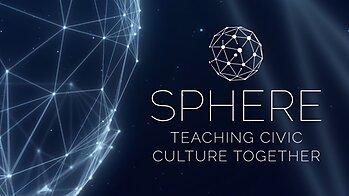

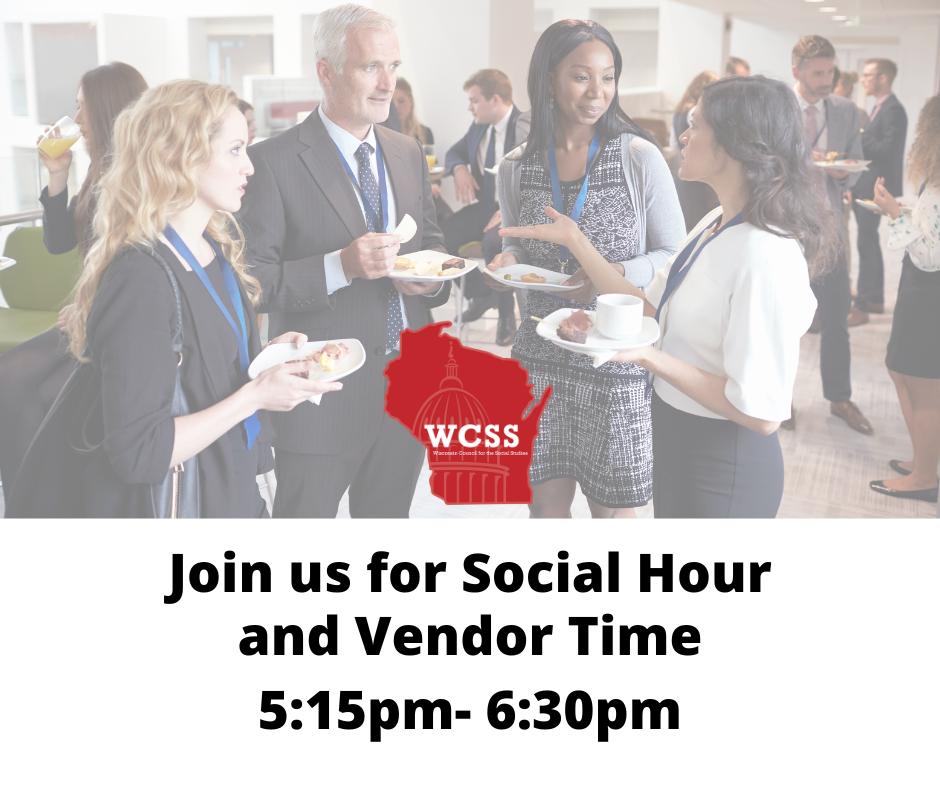
Irene Ann Resenly & George Dalbo, Clinton Community School District
How the Holocaust and other genocides are remembered matters. Memory of these events matters for how individuals and groups understand their identity matters for how nations understand their histories and presents. Memory matters for how educators and students teach and learn about and from genocide. the academic representation and interpretation of the past, collective memory reveals how groups and societies remember, memorialize, and even forget the session will examine how collective memories shape narratives of the Holocaust and genocide. This session will support middle and high school social studies middle school teacher and Holocaust education scholar, and Dalbo, a high school teacher and genocide education scholar, will share insights and resources Resenly and Dalbo will share resources they created for DPI to support the implementation of Act 30, WI’s Holocaust and genocide education mandate.
“When All U.S. History Is Taught From One Book”: Exploring PBS’s Free, Multimedia U.S. History Collection’
Registration 7:00am- 8:45am
Vendor Time
9:00am- 9:50am
Kurt Griesemer, Wisconsin Historical Society
The next chapter of our state’s history is being written, and the Wisconsin Historical Society has a rare opportunity to deliver an unforgettable, modern history center to celebrate and honor Wisconsin. Far more than a modern building, a new Wisconsin history center will collect and share the stories of all our people and connect generations through engaging and relevant experiences. The walls will extend to the borders of the state so that every experience reflects the vast cultural diversity Wisconsin has to offer.
Joe Schmidt, Bill of Rights Institute
This session will explore the Bill of Rights Institute’s curriculum, “The Plainest Demands of Justice: Documents for Dialogue on the African American Experience,” aligned with the best practices highlighted by the book “Civil Discourse: Classroom Conversations for Stronger Communities.” The goal of the curriculum is to engage students in conversations with those who strove and continue to strive for a greater realization of the promises as outlined in the Declaration of Independence. Participants will walk away with resources and strategies that will help them talk about the African American experience as it relates to the teaching of civics and US history.
Thomas Freesmeier, Pilgrim Park Middle School
As a Social Studies PLC, we have worked hours to refine our assessment practices with the new standards and within a move to Standards Based Reporting. We don't have all the answers. Come and hear our ongoing journey and collaborate/share your successes and struggles. Join us as we facilitate a discussion to grow our practice and yours too.
Kimberly Fudge, Social Studies School Service
In this session, participants will build their own current event lesson plan to connect commonly taught historical events to events in the news. Currents events, in the form of news stories, stories told by others, and information from social media -- come at students constantly. Historically, we’ve seen this as a negative, but we would argue in some ways is a positive because it provides a pathway to connect “history” learning to today’s events in ways that may not have been available to us before. Participants will be leaving this session with a current events lesson template and three fully fleshed out Current Events lessons you can take back to your classroom.
Alan Becker, Teacher Created Materials
Inquiry-Based learning gives students agency over their learning and develops student-generated questioning skills. When educators apply active-learning techniques in social studies, students aren’t just students, they’re historians and researchers. In this session, participants will learn how to unleash their social studies teaching potential by creating an inquiry-based teaching and learning classroom using primary sources and social studies simulations as a form of student exploration. This highly interactive and engaging session will be used to promote student-generated questioning, utilize high DOK level thought processes, engage with student-centered techniques to build civic knowledge, and apply learning from the past to today's democratic society.
Kate Van Haren, Penn State University/Pittsville Elementary School
Classroom teacher have realized the multiple benefits of using film and media to enhance student understanding of important social studies concepts. However, students are often left to decipher the connections to class objectives on their own. This session will introduce participants to the Russell Model (2007) and the important stages of preplanning, viewing, and engaging with the film content in real world settings. It is important that students understand that film needs to be critically analyzed just the same as any other media source. Participants will also engage with the Hollywood or History framework, a structured instructional strategy for K-12 teachers that incorporates the C3 framework through an analysis of different types of film, cartoons, media and primary source documents. Participants will leave the session with a template to use when designing their own film based lessons.
Anthony Iannece, Sacred Heart School
Since speaking in public is one of the greatest fears among adults, there are limitless benefits to teaching young minds the skills to be effective, successful public speakers. In this presentation, we will examine how you can develop crucial skills for middle school studentssuch as critical thinking and improved writing habits - through the use of debate activities. Some examples we will explore include the following: "Can total war ever be justified?" and "Which city-state is better: Athens or Sparta?"
Michael Hartwell, PBS Wisconsin Education
When students see themselves represented in media and history, it validates their identity. When students study people from historically underrepresented or marginalized groups, it broadens their perspective of the world and builds empathy. With the newly revitalized Wisconsin Biographies collection, educators can leverage intentionally designed digital media to make non-fiction reading more engaging through a diverse, Wisconsin-based lens. Please join PBS Wisconsin Education for an in-depth look at this incredible nonfiction media collection, including a brand new biography on Tibetan Buddhist monk Geshe Sopa, the founder and spiritual guide of Deer Park Buddhist Center in Wisconsin, along with other sneak previews of upcoming biographies. This session is intended for upper elementary and middle grade educators and providers, however, everyone is welcome to attend.
Does Act 31 apply to ME? The answer is YES! As a WI public school teacher, YOU are required to teach about Wisconsin’s Tribal Nations!
Katherine Bontempo & Alyssa Mussa, Milwaukee Public Schools
In this session, we will dive into this crucial state law and learn about its origins and its key purpose. We will offer guidance on unlearning Native American stereotypes through literature and informational texts by evaluating materials using recommended criteria to check for authenticity and accuracy. Additionally, we will highlight resources that can be used across content areas and elementary grade levels, so that your classroom will not only comply with Act 31 but be an exemplar classroom for infusing Wisconsin Native American histories, cultures, treaty rights, tribal sovereignty, and contemporary happenings.
Postcards From a Farmer: a modern story of agriculture
Jenn Scott, Farming For The Future Foundation
Geared toward upper elementary.
Session 7
Over the last few decades families have lost their agricultural connections. Many students have never visited a farm or do not have a strong understanding of how food is grown. Learn how to implement an activity that uses creative storytelling from photographs to help students better envision the range of work encompassed by agriculture and farming into your classroom. Through this activity students will gain a better understanding of the varied work and the many decisions farmers make over the course of a year. Additionally, students will articulate a more accurate description of the complex, skilled work of modern farming and develop a better understanding of the food supply system.
Introduction to the History of Genocide Session 7
Jessica Hulten, Illinois Holocaust Museum and Education Center
In this workshop, educators will take a deeper look into their rationale for teaching genocide. Participants will examine the guidelines of teaching genocide, including how to define the term, and discuss the challenges of its legal definition. Together, educators will explore the Illinois Holocaust Museum’s new Genocide and Human Rights Virtual Teaching Trunk to help them effectively teach the origins of genocide and learn how to implement age-appropriate classroom activities into their genocide unit.
9:00am- 10:50am
Disrupting Genders Norms from the 17th Century to the Early 20th Century: Session 7
Extended
Deb Fowler, Kathleen Barker, Joe Monsignore- History Unerased
This interactive, multimedia session introduces individuals who played with–or even defied-gender expectations of their time, and how they used gender disruptions to prosper. This historical context on how disruptions of gender norms existed across time & place helps students make connections to today.
Being an American from Our Founding Until Today
Joe Schmidt, Bill of Rights Institute
10:00am- 10:50am
Session 8
What does it mean to “Be an American,” and how has it changed throughout our nation’s history? Through primary source analysis, writing assignments, discussion prompts, and other activities, the Bill of Rights Institute helps students "connect the dots" to this question. Our curriculum focuses on the Declaration of Independence, the Constitution, the Bill of Rights, civic values, and American heroes as educators can help students explore the meaning of citizenship and what it means to them today. Participants will engage in strategies that deeper understanding and lead to discussions about related primary sources.
The Reoccurring Nightmare -- Teaching about "other" genocides and human rights issues today
Justin Glodowski, Marshfield HS
Session 8
Looking for other ways to address new state requirements? Justin Glodowski will share resources and strategies for teaching "other" modern genocides and human rights issues within our world today.
Teacher Travel for Beginners - On-Site PD Opportunities
Erik Jappinen, Oconomowoc High School / WCSS Board member
Session 8
Professional development is available in many different capacities. One of the most meaningful ways to learn new ideas, network with teachers from around the country, and grow as an educator and person is to take part in an on-site professional development. Sites such as Monticello, Mount Vernon, and the White House among many others offer in-person professional development programs.
This presentation would introduce attendees to some of the programs available and motivate those on the fence to give them a try.
Gamers and Non-Gamers Unite! : Experience The Educational Adventure of Award-Winning PBS Wisconsin Video Games
Michael Hartwell, PBS Wisconsin Education
Session 8
Teachers are constantly bombarded with resources and digital content for the classroom, making it tough to discern what is high-quality and authentically incorporates literacy development. In this hands-on workshop, you will learn about two standards-aligned, locally relevant historical inquiry games from PBS Wisconsin: The Legend of the Lost Emerald and Jo Wilder and the Capitol Case. These games feature all the fun and adventure of classic video games combined with a text-dependent format that will get students reading and thinking to move the action along. Not only will participants leave this workshop with multimedia resources to build meaningful literacy experiences, they should bring their personal devices and be ready to play!
Skills in the Classroom using Resources from the National WWII Museum
Alisha Neinfeldt, Chippewa Falls Middle School
Session 8
This session will be exploring resources from the National WWII Museum to help teach students how to compare and contrast events using oral histories, developing critical thinking skills using the "What Would You Do" scenarios, and analyzing text using claim, evidence, and reasoning. This session will send you with resources that you can use the next time you set foot into your classroom. The National WWII Museum is also providing physical and digital resources to support your teaching.
Updates With Kris McDaniel: What's going on at the state level?
Kris McDaniel, Department of Public Instruction
Session 8
Meet with Kris McDaniel, WI DPI Social Studies consultant, to hear about DPI priorities, current work, and future goals and plans for social studies. There will be time for Q&A.
Erica Barnett-Southworth, St. Norbert College
Session 8
In Wisconsin, secondary social studies teachers are required to teach about rich and diversified world religions content yet are often given very few school district-provided resources to do so, with the exception of a textbook. Unfortunately, social studies textbooks typically relay the “White Social Studies” narrative of religion as a “white” cultural sphere and place men as the central agents of religious historical change. As educators, we pondered how to interrupt these racist, male-centric patterns and created the “Pillars of Strength: Ancient Religious Mothers'' Online Art Gallery Resource as a solution for teachers and students to learn more about religious women leaders. In this session, participants will learn about and engage with the “Ancient Religious Mothers” Online Art Gallery as an ethnically-accurate, professionally researched digital image collection portraying the ancient mothers of Judaism, Islam, and Christianity. Participants are encouraged to bring their own electronic devices to this session.
11:00am- 11:50am
The need for civic education has never been greater and history is the foundation of civic engagement. Historic education institutions have the opportunity to provide a safe environment for the exploration of civic issues of the past in order to encourage students to find their voice in the current moment.
Through historical inquiry and the investigation of primary sources, students learn to grapple with the present and envision the future by developing critical thinking skills, creating connections across difference, and discovering relevant models for active civic participation. Working with your classroom expertise, museums can align their programming with content standards you teach in your classrooms, creating natural partnerships that can span years, new audiences and lifelong learners. Join us as we share tips for connecting with your local historical institution and together we’ll examine how museums and sites can be spaces of dynamic and meaningful civic learning.
Joe
The Constitution set a strong foundation for our country though its writers understood that people would need to engage in conversations about it to support a thriving nation. Some ideas about our country and the Constitution have been contentious since the beginning and through thoughtful deliberations, a best solution could be reached to ever changing times. Disagreements about the Constitution is a feature, not a bug, of our system. Explore the topic of free speech though document analysis while engaging in a discourse strategy that will help allow your students to have similar discussions in your classroom.
Lyman Elliott, Madison West HS & President of the Wisconsin National Board Network
If you've ever considered becoming a National Board Certified Teacher (NBCT), or if you've never heard of it, this session will put the possibility of National Board Certification on the table for you. While the portfolio process does much to vindicate our accomplished practices, the certification can mean $1000's more a year for YOU!!! No matter where you are in your teaching career, this informational session will give an overview of the process, answer your questions, guide you to candidate support resources.
Andrea Coffin, WiLS / Recollection Wisconsin
Description: In this session, you’ll learn about Recollection Wisconsin (https://recollectionwisconsin.org/), a free digital library of primary source photographs, documents, maps, oral histories, and more that will spark students’ curiosity about the history of Wisconsin and their own communities. These primary sources come from a diverse set of 250 partner organizations - libraries, universities, historical societies, and museums - across the state. We’ve recently revamped our educator resources and added new themes requested by teachers, such as Famous Wisconsinites and Early Statehood. We’ve also created our Travel Back in Time series, highlighting historical photos of Wisconsin communities, small and large, from Ashland to Wilmot. Join this presentation to learn how the materials in Recollection Wisconsin can bring history to life in your classrooms!
Tools from the Wisconsin International Resource Consortium (WIRC) to add to your classroom toolbox!
Session 9
SARAH RIPP, University of Wisconsin-Madison, International Division, Institute for Regional and International Studies
Members of the Wisconsin International Resource Consortium (WIRC) -- which is comprised of representatives from each of the nine area studies centers at the University of WI-Madison -- will share resources they can offer both individually through a specific center, as well as collectively through collaborative WIRC-programming, for K-16 educators.
Andrew Levin, Franklin High School
The Wisconsin educational system and America as a whole faces increasing diversity of students, internationally-focused aspects of state and local standards, and exposure to global goods, ideas, and events. As such regardless of the specific classes we teach, we are all global educators. This session will help you embrace these changes and become more globally competent. Relying on research and real world trial and error, you will learn techniques that will help you achieve better engagement and rapport. The session will also address how you can develop a broader school climate that includes all of its students. So become a more effective educator while embracing your students' diversity as an asset.
Creating an Ecosystem of
Erin McCarthy, Greendale Middle School
It takes an ecosystem to ensure students, teachers, and everyone learning and working in your educational environments feels like they belong. Explore Greece and learn how schools overcome challenges. Investigate strategies for “philotimo,” cultivating connected student leaders, strengthening community, and empowering global collaboration. Reflect, connect, and gain strategies to ensure all children thrive in an ecosystem of welcome and belonging. This presentation focuses on every person in a school feeling comfortable and safe, connected and supported, proud and included, heard and understood.
Irene Ann Resenly, Kromrey Middle School
11:00am- 12:50pm
Session 9
Extended
We will explore what it means to talk about difficult histories in an age-accessible (appropriate) manner. Geared towards 3-8 teachers but with relevance for teachers at all levels, this session will offer the space to learn, reflect, discuss, and create actionable steps towards practice. Using the Holocaust as a case study - but with application to other histories - we will examine a series of intentionally scaffolded images and reflect on their "appropriateness" in classroom settings while diving into historical content and lesson ideas for each image. Resenly (PhD, UW-Madison), a Holocaust education scholar and active middle school teacher hopes that by teachers reflecting on their own perceptions and values in teaching difficulties histories, they will feel empowered to support our young learners.
Marc Pioch, Teacher Created Materials (TCM)
Help students connect with diverse perspectives in history through untold stories! Engage students using fascinating but untold tales about real people and events to add relevancy and purpose to any social studies or literacy curriculum. Help inspire your students as they read and analyze diverse stories, all while promoting representation and culturally responsive learning. Students should see both their own identities and unfamiliar viewpoints reflected in their curriculum. Support students as they boost empathy and make connections between themselves and others. Explore hands on lessons and activities that utilize primary sources and build inquiry as well as literacy skills all while empowering students to explore their own untold stories! (e.g. elementary educators)
Adam Jacobi, Wisconsin Interscholastic Speech & Dramatic Arts Association
Teachers can hold short debates to help students better understand multiple perspectives on contentious issues. Building on an informational session last year, this workshop will *immerse* educators (primarily grades 6-12) in activities they can use to help students discern fact from so-called fake news and engage in higher-order thinking while cultivating critical listening. Despite a rich heritage in debate, Wisconsin has dwindled to fewer than 5% of middle and high schools participating in interscholastic debate, compared to twothirds participating in interscholastic speech (forensics). Additional resources will be shared to help busy teachers and students access debate formats without undue burdens on their time. The presentation will be facilitated by Wisconsin's coordinator of interscholastic debate, who is also a consultant with the Harvard Debate Council and board member of the National Speech & Debate Association.
Beth Schaefer, Wisconsin Agriculture in the Classroom
Cheese, cranberries, and brats are some of our state’s most famous foods, but where does it come from and how does it impact our lives daily? Wisconsin Agriculture in the Classroom will share new lessons designed to support your 3-5 grade students and help you teach Wisconsin geography, history and economics using food, hands-on activities and e-learning resources. Discover how to use food and farming as a ‘carrot’ to help engage your students in exploring Wisconsin’s historical role as a leader in agriculture while introducing students to the careers, economic impact, and trivia of Wisconsin Agriculture. Get tips on how to earn grant money to bring Ag to ALL classrooms (including yours!) And learn how to bring new reading and writing opportunities to your social studies classroom with the Ag in the Classroom Essay Contest. Leave with new ideas and activities that can be seamlessly integrated to engage your students with lessons, resources, and ideas with Wisconsin Agriculture in the Classroom.
Sarah Harris, National Constitution Center
Participants will receive a brief overview of the National Constitution Center’s educational framework, which includes an intentional focus on civil dialogue and reflection. They will then learn about the various ways that this practice can be implemented in the classroom. This includes setting norms, building connections, and recognizing behaviors that can impact discussion. Participants will be asked to engage through individual brainstorming sessions, small group breakout rooms, and large group discussion to make the necessary connections between the theory of these ideas and the practice of them.
Byron Holz, Logan High School, School District of La Crosse
Many, if not most, teachers never learned the LGBTQ+ history of the United States beyond Stonewall and Harvey Milk. This survey is intended to acquaint teachers with the richness and diversity of LGBTQ+ history from which they can draw for their lessons.
Rachel Davison Humphries, Bill of Rights Institute
How do we help young people identify their power to influence their communities? What if they understood that good citizenship comes in many forms and impacts all aspects of social life? What if they had a platform to showcase incredible projects and share them with the world? The Bill of Rights Institute has launched a nationwide contest to amplify young people who are a force for positive change in civil society. Explore an encompassing, free, design-thinking curriculum on engaged citizenship that includes the history of government, charity, and entrepreneurship and help young people rethink their capacity to lead change in their communities!
Middle and high school educators can learn how to use the MyImpact Challenge contest and its optional curricular supplement to encourage service projects that are focused on local communities, designed by students, and geared toward civil discourse.
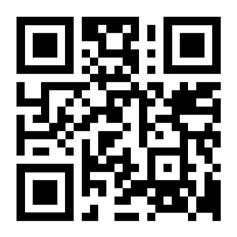
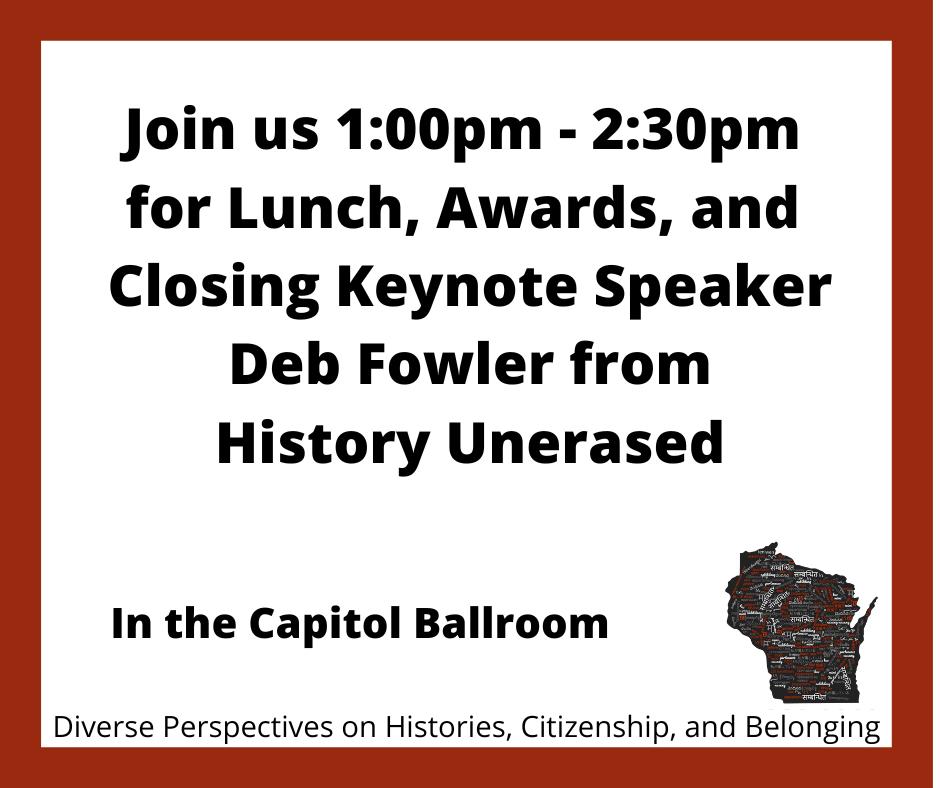 David Olson, Retro Report
David Olson, Retro Report


How do you engage students to connect past and present? How do you teach students to dissect essential questions and practice meaningful reflection and dialogue? Start with stories. Stories, particularly ones told from diverse viewpoints and hidden histories, attract students’ attention better than any other resource. Turn that attention into meaningful learning with strategies for sharpening inquiry skills and promoting student reflection and discussion. This interactive session will have participants explore a library of engaging short films, demonstrate inquiry skills, and dive into tools for reflection and dialogue. Utilizing Retro Report’s library of 250+ short-form documentaries, this session will highlight essential strategies and resources for the U.S. History, U.S. Government and Politics, Human Geography, and Psychology courses.


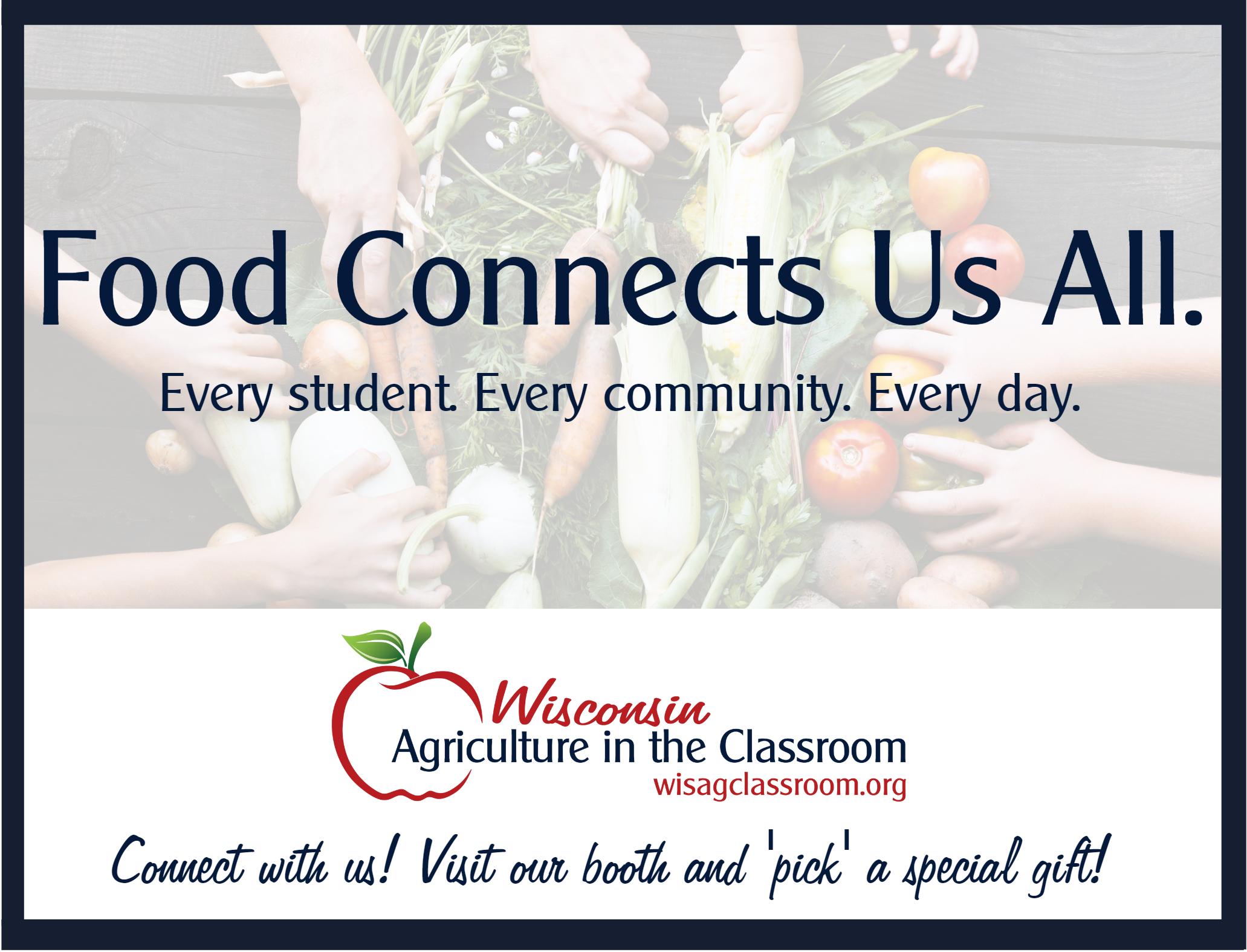
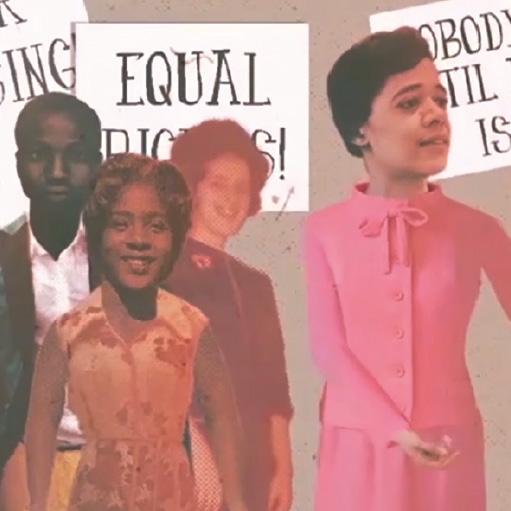
PBS Wisconsin Education creates free, standards-aligned, Wisconsin-focused educational media for grades PreK-12. From videos, to games, to practical professional learning events, PBS Wisconsin Education serves adults and learners in classrooms, libraries, virtual environments, and neighborhoods.
Explore the collections and professional learning opportunities at pbswisconsineducation.org
Wisconsin Biographies
Enrich curriculum with stories of notable people in Wisconsin history.
GRADES 3-6
Jo Wilder and the Capitol Case
Solve mysteries about artifacts from Wisconsin’s history.
GRADES 3-6

Use historical inquiry skills to discover shipwrecks inspired by Great Lakes history.
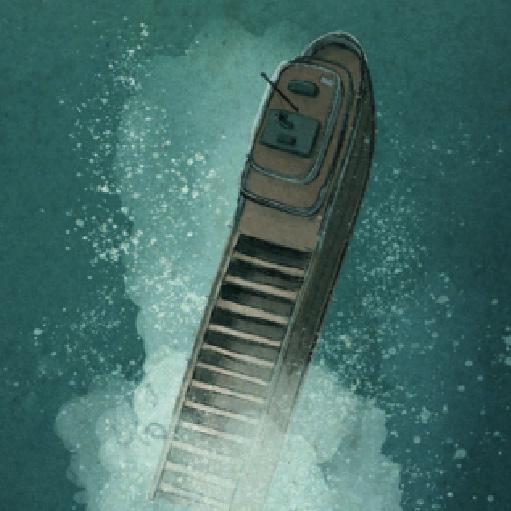
GRADES 4-6
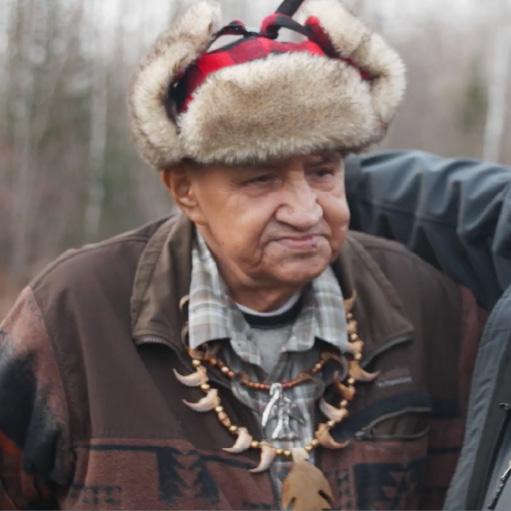
Access accurate and authentic resources about the Native Nations of Wisconsin.
GRADES P re K-12

HELPING 5-12 EDUCATORS FACILITATE THE DIFFICULT CONVERSATIONS IN THE CLASSROOM!
• Foster Civil Discourse in your classroom on today’s pressing issues
• Emphasis on viewpoint diversity supported by reason and evidence
• FREE online resources, content, and programming!

• Bring Sphere to your School: we provide FREE professional development workshops!
APPLY NOW TO ATTEND SPHERE SUMMIT IN WASHINGTON D.C.!
Free Full scholarship summer professional development (includes travel stipend)

Highlights:
• 5 days, 4 nights in our nation’s capital
• Presentations by leading policymakers, scholars, and academics
• Focus on key public policy issues facing our nation today
• World class professional development sessions by leaders in civic education
Sphere’s Mission: restore and rekindle the spirit of civil, constructive, and respectful discourse with a return to facts, analysis, and research as the vehicles for discussion and debate.

Stop in for a free gift from OLD ABE.

Lesson Plans and Resources
Internationally themed outreach programming, resources, and support to K-14 teachers and students, Minority Serving Institutions (MSI), and Community Colleges.
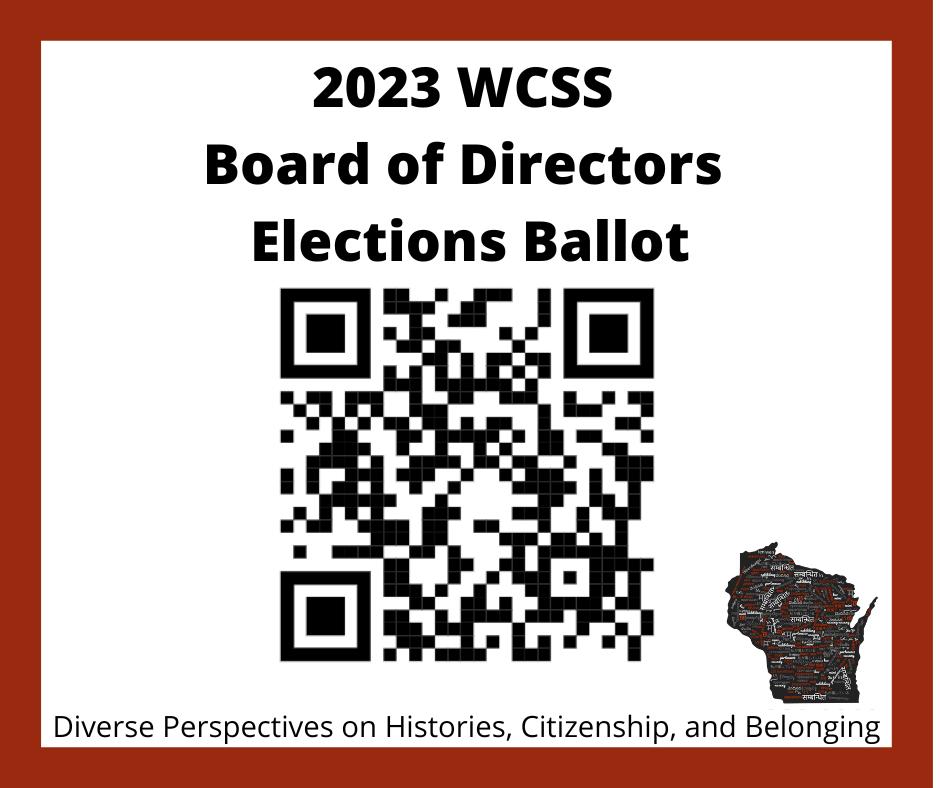
Themed Discovery Boxes
Regionally Themed Lending Libraries
Language & Culture Resources
Teacher Training Workshops
wirc . international . wisc . edu
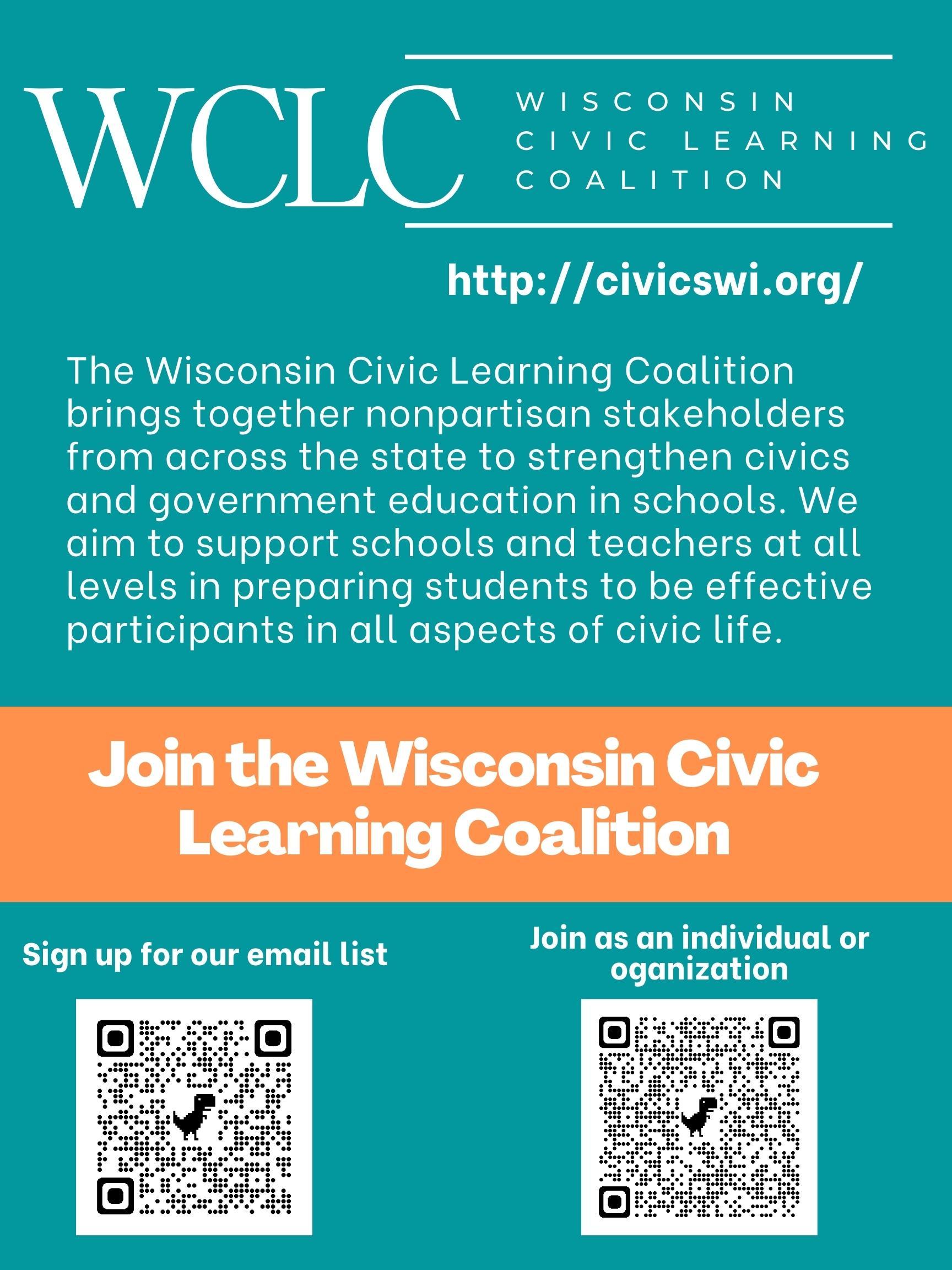
Brittany Chikowski
Loretta Ocampo
Chloe Barbosa
Anna Schneider
Kimberly Hoag
Madeline Sticha
Kaela Swanson
Alyssa Vincent
Sharveta Parker
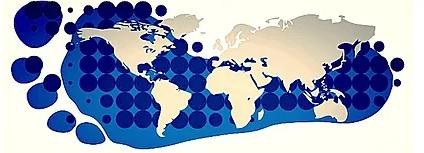
A Walk in Their Shoes is the idea of a single teacher that grew and took on a life of its own. As late as the 1980 U.S. Census, Marathon County, Wisconsin, was part of the “whitest" congressional districts in the United States. In the late 1980’s and 1990’s, central Wisconsin began to see immigration of Southeast Asian refugees. Today, the Wausau School District—the largest district in the county—boasts students who speak over 35 different home languages.
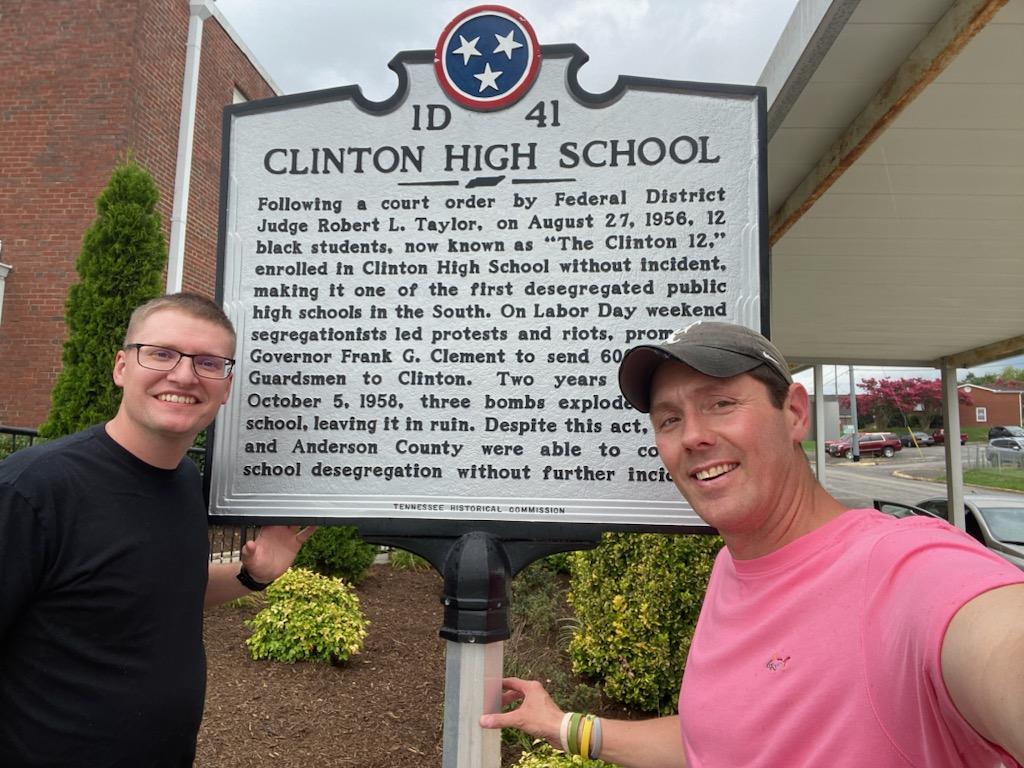
It is critical that our young people learn to work and live in a global society. As educators, we also feel that it is important that young people understand the impact of other cultures and that history takes place everyday across our planet. Our hope is that A Walk in Their Shoes can continue to bring authors with compelling stories of humanity and transformation to students and community members in Marathon County.
A Walk in Their Shoes is a collaborative effort by north central Wisconsin educators who hope to put a very personal face on the current events that fill the airwaves, print media, and the Internet. By providing access to powerful speakers who have first-hand experience with contemporary history we hope to provide middle school students across central Wisconsin with lessons that impact students’ lives, helping them see the world with different eyes, the opportunity to look at life from a global perspective, and the chance to see that one person can truly make a difference.
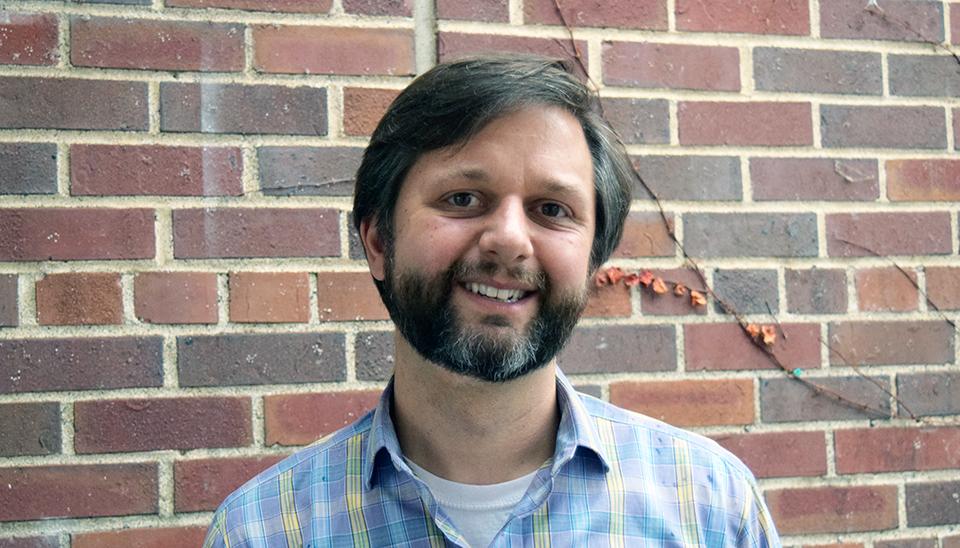
Attached is a photo of me from last April when I completed one 10-mile leg of an 80-mile ruck march to honor the 1,000 Americans killed on the harrowing Bataan Death March from World War Two. I have been teaching in Baraboo since 2000. For 13 years I taught AP U.S. History and I have been actively teaching AP U.S. Government and AP Comparative Politics for the entire time. I am very happily married to an English teacher who's at Sauk Prairie High School and we have one daughter who attends college at UW Eau Claire. My favorite "social studies memories" have been leading several week-long student trips to Washington, D.C. and a fundraiser I organized last year to raise money for Team Rubicon for their operations in Ukraine. LONG LIVE UKRAINE!
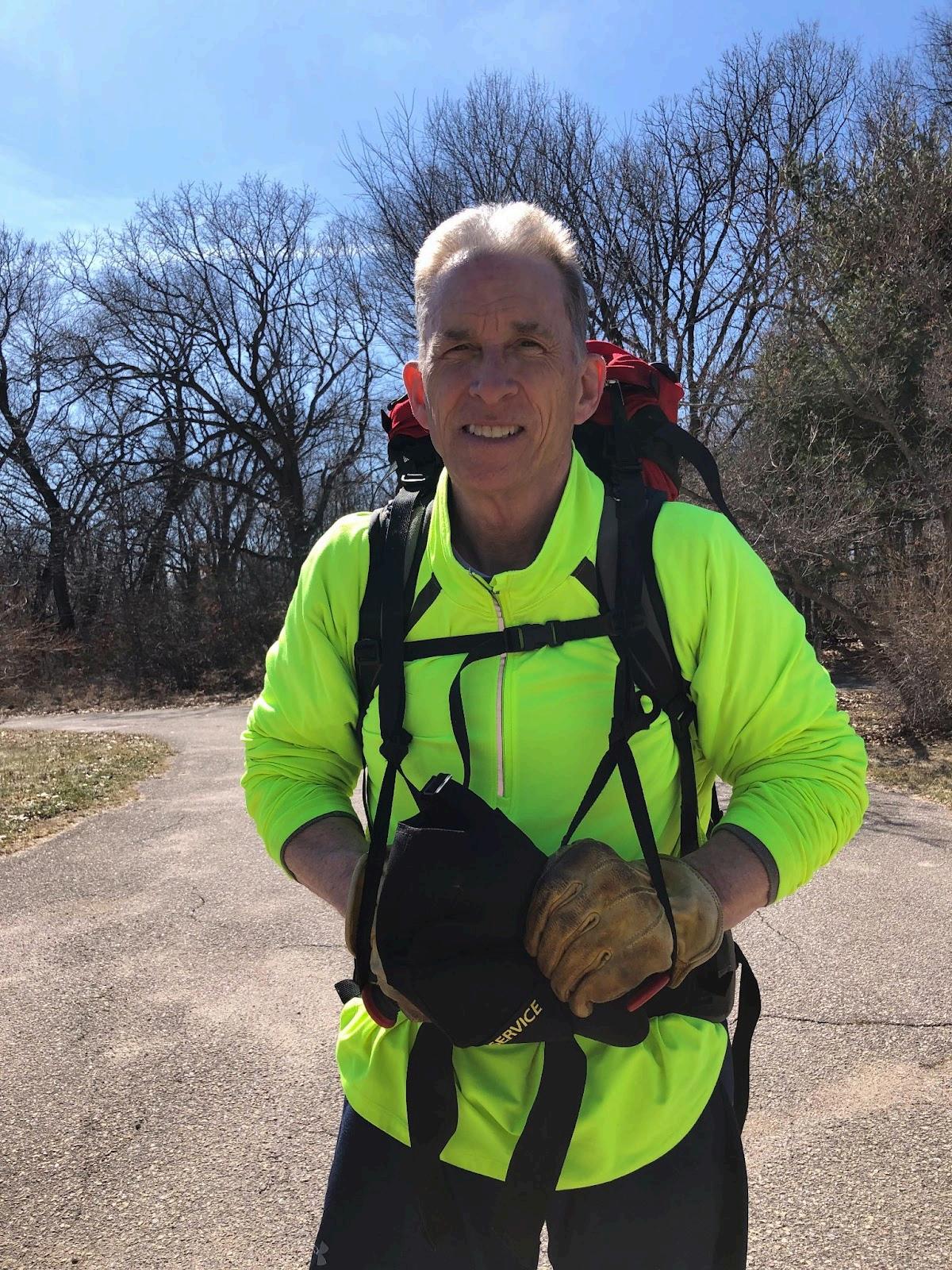
George Dalbo is a high school social studies teacher in Clinton, Wisconsin, a rural community in the south-central part of the state. In his 17th year of teaching, George has taught social studies at every grade from 5th through 12th in public, charter, and private schools in urban, suburban, and rural communities in Wisconsin and Minnesota, as well as two years in Vienna, Austria. George has also taught social studies methods courses and supervised student teaching for pre-service teachers. George completed his Ph,D. in Social Studies Education at the University of Minnesota, where his research focused on genocide education in K-12 classrooms and curricula. George is working with Wisconsin’s Department of Public Instruction, the Holocaust Education Resource Center in Milwaukee, and the Wisconsin Council for the Social Studies to promote Holocaust and genocide education across
My name is Brandon Blahnik and I am in my 15th year teaching Social Studies! I am currently in my 7th year teaching 7th and 8th Social Studies at Bayside Middle School in the Fox Point-Bayside School District. Each year, my 8th grader students participate in National History Day and this grant will go towards buying more books and resources for my students to have access to for their National History Day projects. Thank you so much again for awarding this grant to help our students to continue to learn and engage in Social Studies!

Carrie Carlson has been teaching Social Studies in Wisconsin for 23 years. She earned her bachelor's degree from Carthage College in History and Education and her Master’s of Education in Teaching and Learning from Saint Mary’s University in Minnesota. She has been able to share her passion with students while working at Medford, Eau Claire North and Altoona High Schools.
Carrie was introduced to WCSS through a study tour for teachers to Germany in 2007. She was sold on the organization after attending and presenting at the conference in 2008. Carrie has served as a delegate, vice president, editor, and co-chair of membership throughout her tenure on the board. WCSS gave Carrie the opportunity to participate in the NCSS Summer Leadership Institute in Washington DC where she was able to meet and lobby Senators and Representatives for Social Studies education. In 2015, she was selected as a member of the Wisconsin State Superintendent’s Social Studies Advisory Council. In 2018, she was selected as a member of the Social Studies Standards Writing Committee and then helped vet standards-based questions for the Forward exam. She is currently helping develop guidance for Political Science standards.
Outside of school, Carrie spends most of her time with her family, including her husband Dan, and daughters Isabel (16) and Serena (13). She loves traveling, coaching and watching her kids do whatever they love. Carrie is honored to be chosen for this award as she loved serving on the board with Sally Michalko, one of the most welcoming people who always made her smile. Carrie believes the best part of being on the board was learning from all the amazing people. She feels that because of them, she is a better teacher.

Justin Glodowski is proud to have served the past two years as President of the Wisconsin Council for the Social Studies and thanks you all for attending. He has served on the board for the last fourteen years in various different positions and may be best known for his time as President-Elect with the virtual conference and the Beyondference learning opportunity. Also, during his time on the board, he has advocated for civics education, WCSS conference student scholarships, first-time awards, and any opportunity to get more people to experience this amazing conference. Outside of WCSS, Justin is in his twelfth year teaching at Marshfield High School where he teaches AP US Government and Politics, AP Comparative Government and Politics, and Genocide and Human Rights. Justin also has recently served on teacher advisory groups with RetroReport and the National Constitution Center.
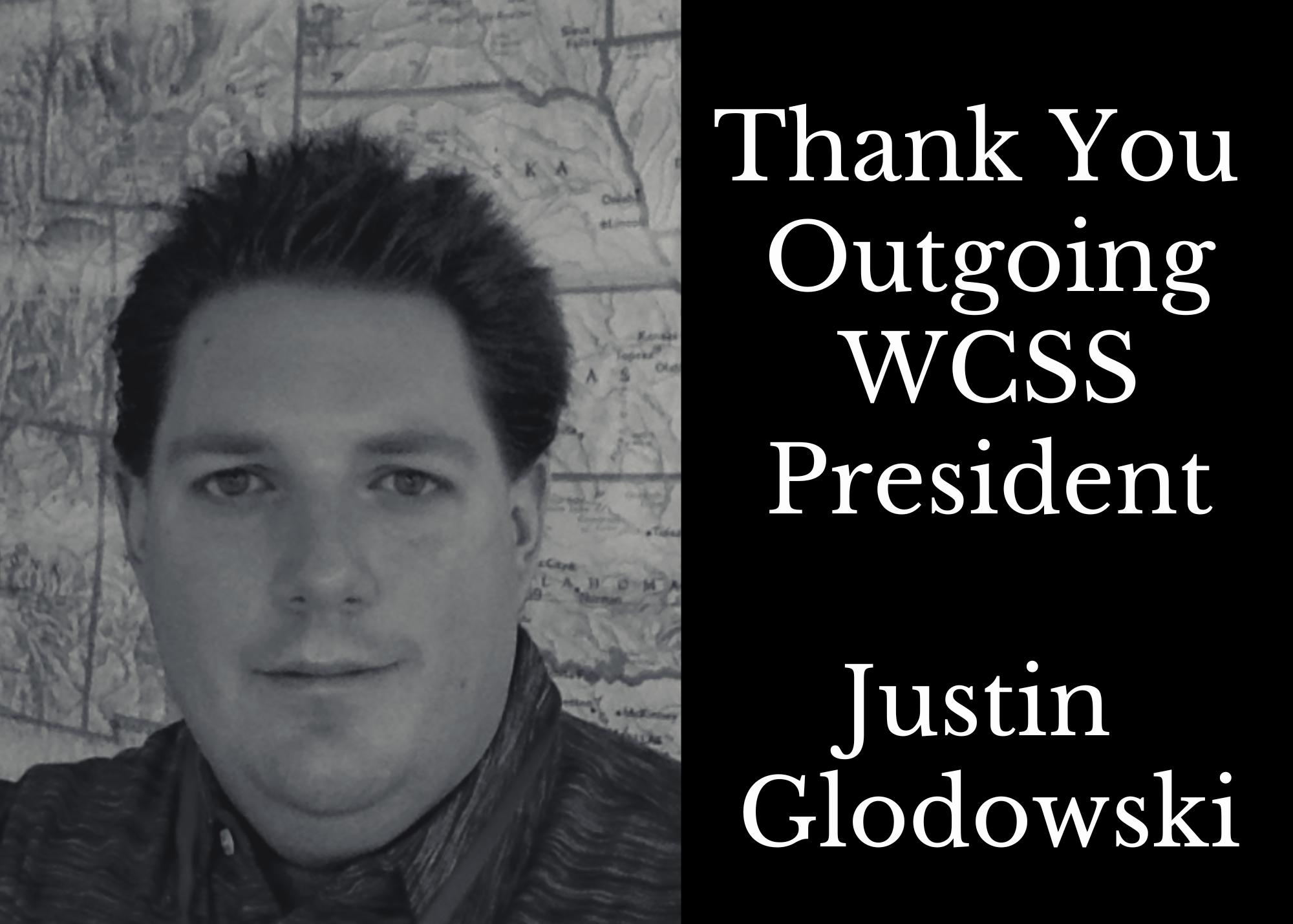
This year our conference theme is focused on ensuring that educators will be able to access professional development and resources that will facilitate opportunities for students to access diverse perspectives on our shared histories, civic identities and what it means to belong in the Badger state. The logo was designed to encompass every language spoken in Wisconsin. As our nation and our state experience division, our goal as educators is to bring people together so we can all connect through the power of shared stories and experiences. We are many voices, but we are ONE WISCONSIN!

Please leave your feedback on the conference experience!
